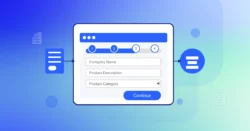A test case is a set of specific actions, inputs, and expected results designed to validate whether a particular aspect of software functions as intended.
In software development and quality assurance, test cases play a central role in determining if the application meets its software requirements. Each test case provides a detailed outline of steps a QA tester should follow to assess a certain functionality, whether that’s clicking a button, submitting a form, or navigating between screens.
The purpose of a test case is to ensure that software behaves consistently and meets user expectations, minimizing the chance of bugs or glitches slipping into the final release.
The scope of test cases can range from simple tests, like verifying if a login button works, to complex scenarios that involve multiple steps and inputs. By structuring tests in this way, QA teams make sure that every part of the software is scrutinized, helping developers identify and fix issues before the software goes live.
Components of a Test Case
Each test case typically contains a few essential components to guide testers through the process and help ensure consistency. First, a test case includes a unique identifier, usually a number or code, which makes it easy to reference. Next is the description, which provides a brief overview of what the test aims to accomplish.
Preconditions are also part of a test case, listing the state or setup required before the test can begin. This might include logging into the system or ensuring specific data is available.
The test steps outline each action the tester needs to perform, along with the expected result for each action.
The final component is the postcondition, which describes the state of the software after the test has been completed. Test cases can also include additional notes to offer guidance, edge cases, or any other useful details. These components create a roadmap that testers can consistently follow, making it easier to spot discrepancies or bugs.
Benefits of Test Cases in Software Development
Test cases are indispensable in software development because they streamline the quality assurance process and ensure that testing is thorough. With well-defined test cases, QA teams can methodically check every feature and function, boosting overall software quality and reliability. When a new feature is added, test cases ensure that it not only works but also doesn’t disrupt other parts of the software.
Additionally, test cases provide clear documentation that can be referenced later, making it easy to replicate tests, track issues, and communicate with development teams about specific software requirements. The structured nature of test cases saves time, reduces errors, and supports continuous testing, which is especially valuable for SaaS products that require regular updates.













